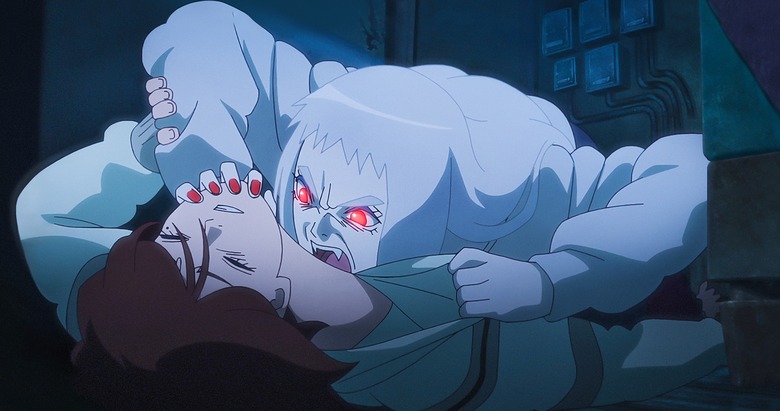Netflix Won't Release This Insane Doc About A Missing Man Allegedly Sacrificed By Vampires
Netflix releases a metric ton of true crime documentaries every year, but the streaming service does apparently turn some ideas down. According to The Columbus Dispatch, Netflix has gone back on its plans to release the documentary Vampires in Gem City, which would have covered the mysterious disappearance of 26-year-old George Phillip Gall near the goth-themed Asylum nightclub in Dayton, Ohio in 1994.
George Phillip's wife, Helen, and maternal uncle, Dan Phelan, said the producers told them that Netflix decided not to release the documentary. Director Joshua Rofé has yet to respond to The Dispatch's inquiry about the cancellation.
Phelan says that producers contacted the family about three years ago. Helen, still in search of answers, was happy for anyone to bring more attention to the unsolved mystery of her husband, no matter what the documentary was about.
"I was hoping they would air it so people know what has happened to my husband so we could get the word out there," Helen Gall said. "I need answers as to why they did this."
Phelan also noted that David Holthouse was originally set to direct the project but was replaced by Rofé, who previously directed Bob Ross: Happy Accidents, Betrayal & Greed for Netflix. And once Rofé took over, the documentary shifted focus... to vampires.
"For the last 30 years, Dayton, Ohio has been home to the largest coven of vampires outside of New Orleans," said an official description of the documentary from Netflix (via What's on Netflix). "When a man goes missing in the goth nightclub they use as their headquarters, the case goes cold until a police officer comes forward in 2008 with a story."
As the story goes, Gall took a bus downtown on October 13, 1994, after a heated argument with his wife. He got off near the Asylum nightclub on South Main Street in Dayton, and he was never seen again. Gall was eventually declared dead by the state in 2002, but a few years later, retired Dayton police lieutenant David Williams shared a shocking revelation.
"The story was that Gall was supposed to have been involved in an occult ritual in the upper floors of the bar and then was beheaded, and that head was sold as a relic for the occultist involved," Williams told the Dayton Daily News in 2008.
Despite the changes, the family was deeply invested in seeing the documentary through to its conclusion in hopes that it would heat up the cold case. Now, it doesn't seem like they'll get that chance, and Netflix has yet to explain why.
